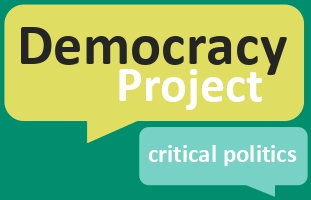Foreign affairs funding largely on ice as new priorities emerge
This week’s Budget has more than just financial accounts. International analyst Geoffrey Miller delves into what the allocations say about the direction of foreign policy under the new ministers.
There are some new clues to be found in the Budget that illustrate the foreign affairs and trade agenda of the Labour Government, under new ministers Nanaia Mahuta and Damien O’Connor.
The headline item and only new spending for Vote Foreign Affairs was a $344m appropriation to redevelop Scott Base in Antarctica.
Of course, this is significant new money – and a substantial boost on previous plans to spend only $200m. But the Antarctic rebuild was also well-known as one of Winston Peters’ many pet projects. As such, the cash arguably represents one final victory for the former foreign minister, rather than being the first triumph for the current one.
Indeed, Peters’ success in extracting dollars from the Minister of Finance for his ministry was well-known. By far the biggest boost came in the 2018 budget, when Peters secured a $900m boost for foreign affairs over the following four years.
The vast bulk – $700m – of that mega-boost to funding in 2018 was allocated to foreign aid. The move increased New Zealand’s aid spending to 0.28% of Gross National Income (GNI). But with most of New Zealand’s aid being directed to its immediate neighbourhood, the increase was also a key component of Peters’ “Pacific Reset” strategy, the aim of which was to counter China’s growing influence in the Pacific.
Peters also secured smaller top-ups for foreign affairs in both 2019 and in 2020, when an additional $55m was appropriated for foreign aid in the midst of Covid-19.
Perhaps the real success of Nanaia Mahuta, Labour’s new foreign minister, together with Damien O’Connor, the new trade minister, is that in a budget focusing heavily on domestic issues and especially welfare, no cuts have been made to the foreign affairs appropriation.
New targets
A host of new performance measures buried in Vote Foreign Affairs provide fresh insights into the Government’s future foreign policy and trade agenda – now under Labour’s sole control and no longer mostly outsourced to New Zealand First.
Perhaps the single most significant new target is one listed as the ‘Number of joint Ministerial statements delivered with bilateral partners’. Both the target itself and the number – 15-25 statements – suggests that Mahuta’s general approach to China – fewer statements with the Five Eyes, and more joint statements with Australia – is set to continue. The target means we may also see the approach expanded to include other tricky foreign affairs issues, and to involve other bilateral partners as joint signatories.
Other new ambitious targets are geared towards increasing New Zealand’s multilateral engagement. One measure focuses on the “number of resolutions New Zealand leads or co-sponsors in the UN General Assembly and the Human Rights Council” (for which the target figure is listed as 20-30), while another consists of the “number of multilateral meetings in which Ministers are supported to participate (UN, WTO, Commonwealth, OECD and other relevant meetings)” (with a goal of 15-25 meetings). Additional meeting targets, including with ASEAN, APEC and others, are included in another section on the ‘Indo-Pacific’.
The use of the Indo-Pacific term, which replaces the ‘Asia-Pacific’ term used in 2020 budget documents, is in itself significant – and reinforces views that Mahuta will continue to strike a middle ground in New Zealand’s relations with the Five Eyes and China. ‘Indo-Pacific’ is a relatively new label for the region preferred by Australia and the United States, as part of their challenging of Chinese dominance.
Indeed, the Vote Foreign Affairs document lists at least five new targets relating to the Pacific – a strong indication that the ‘Pacific reset’ introduced by Mahuta’s predecessor will continue, at least in some form, backing-up previous analysis that showed Mahuta was taking a balanced approach.
Elsewhere, six new environmental and climate-change related targets show how the foreign affairs portfolio is being integrated into Labour’s wider agenda. There are also several new trade indicators – including a target of 5-8 trade negotiations to be “in progress” and a target for foreign visits by Damien O’Connor as trade minister.
This last measure is still to be defined, “pending removal of travel restrictions”, but it follows an announcement last week that O’Connor would travel to the UK and EU next month to try to make headway on free trade negotiations that reports suggest are not going well.
Mahuta herself has yet to announce her first foreign visit.
Geoffrey Miller is an international analyst at the Democracy Project. He has lived and travelled extensively in the Middle East and is a fluent Arabic speaker.
This article was originally published on the Democracy Project.
